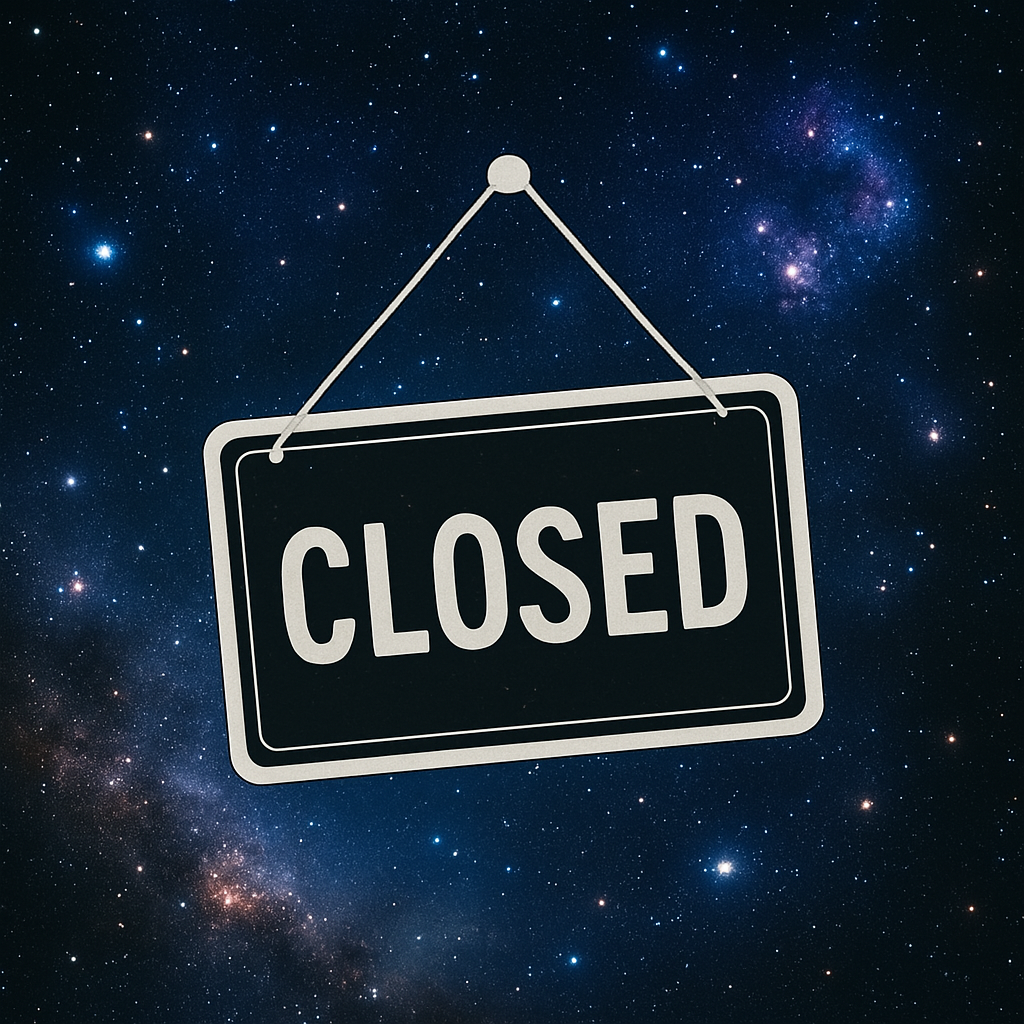FEDERAL NEWS HUB
Federal Government Launches “Self-Audit Week” to Encourage Voluntary Mistake Reporting

April 9, 2025 Washington D.C.
Reported by: Denise Albright-Payne – Federal Programs Reporter
In what some are calling the most ambitious attempt at “outsourced enforcement” to date, the U.S. Treasury Department has announced the official launch of National Self-Audit Week, a voluntary federal program encouraging taxpayers to audit themselves before the IRS does.
Set to run annually during the first week of May, the initiative invites individuals and small businesses to “review, reflect, and report” any tax errors they may have made — with the promise of reduced penalties and, in some cases, commemorative stickers.
“We want to build a culture of honesty,” said Deputy Treasury Secretary Carl Winston during Monday’s press conference. “If people are going to panic about audits anyway, we figured we’d give them a chance to preemptively panic — but on their own terms.”
What Is Self-Audit Week?
Under the new program, taxpayers who voluntarily report “reasonable mistakes” — including forgotten 1099s, exaggerated mileage claims, and “the classic mix-up of a business dinner and an Olive Garden coupon night” — may qualify for:
• A 50% penalty reduction
• Entry into a raffle for expedited refund processing
• A printable PDF certificate titled “I Audited Myself and All I Got Was This Reduced Fine”
Participation is not mandatory, but IRS officials confirmed that those who don’t self-audit “may be gently reminded of their missed opportunity in future correspondence.”
Taxpayers can submit self-audit reports through a new portal called Oops.gov, which went live this morning and immediately crashed under light traffic.
Experts Divided
Supporters argue that Self-Audit Week empowers citizens to “own their tax narrative” while saving the IRS time and resources.
“This is like the TSA asking passengers to frisk themselves before boarding,” said public policy professor Janice Croft. “It’s wildly optimistic, but oddly charming.”
Critics, however, say the program is a thinly veiled cost-cutting measure.
“They’re basically outsourcing guilt,” said Boston-based accountant Elijah Moore. “What’s next — Self-Indictment Fridays?”
Others question the potential for misuse. Already, a Facebook group called “Patriot Auditors Anonymous” is advising members on how to report fictional errors to gain leniency on real ones. A post reads, “Admit to a fake overclaim on dog grooming. Distract them from your actual crypto flips.”
Possible Expansion?
According to internal memos leaked to the press, the Department of Education is exploring a similar concept for student loans called “Voluntary Repayment Honesty Month”, while the Department of Transportation is reportedly considering “DIY Vehicle Inspection Tuesdays.”
As for Self-Audit Week, the Treasury says it’s watching closely to see if the public embraces this “new era of introspective compliance.”
“We’ve always said Americans are ruggedly individualistic,” said Deputy Secretary Winston. “We just never imagined they might individually audit themselves — for fun.”
Participation opens May 1, assuming the website works by then.
IRS Quietly Testing Monthly Subscription Model for Taxes

April 9, 2025 Washington D.C.
Reported by: Dale Crenshaw, Staff Writer
In a move that has flown largely under the radar, the Internal Revenue Service (IRS) has begun quietly piloting a new “subscription-based tax model,” aimed at making the process of filing taxes more “manageable, modern, and monetizable.” The pilot program, known internally as IRS Plus, allows participants to pay a flat monthly fee to have their federal tax filings calculated, deducted, and submitted on an ongoing basis — effectively turning tax season into a year-round service.
According to leaked internal documents and early participant feedback, the new model is being tested among a small group of gig economy workers, influencers, and self-employed professionals in California, Texas, and “select digital nomad hotspots.” The IRS has not formally announced the pilot but confirmed that it is “exploring innovative filing solutions for 2026 and beyond.”
Taxes as a Subscription Service
The concept is surprisingly straightforward: instead of waiting until April 15th to file a year’s worth of financial chaos, subscribers to IRS Plus pay a fixed monthly rate — ranging from $19.99 to $99.99 — depending on income, filing complexity, and what the agency calls “engagement level with federal systems.”
In exchange, the IRS automatically pulls data from bank accounts, payroll services, and “publicly available financial activity,” including Venmo history and Zillow estimates for home equity. Each month, subscribers receive a digital statement summarizing their estimated taxes owed, deductions applied, and “emotional volatility index” — a feature the agency says helps gauge audit risk based on recent financial behavior.
There are multiple subscription tiers:
• IRS Plus Basic – Includes automatic filing and monthly payment scheduling. Ads for TurboTax may still appear.
• IRS Plus Gold – Adds quarterly “tax fitness reports,” a personalized deduction coach (AI-powered, naturally), and a once-a-year Zoom call with a real IRS agent named Alan.
• IRS Plus Platinum – Priority support, waived late fees, expedited audits, and access to the “IRS Concierge Team,” a premium support group that responds with actual humans — allegedly.
A Response to Modern Habits
“Americans are used to subscriptions,” said an IRS consultant who spoke on condition of anonymity. “We subscribe to coffee beans, toothbrushes, dog food, even monthly murder mystery boxes. Why should taxes be the last thing we handle once a year in a panic?”
The same consultant noted that early feedback suggests taxpayers actually feel less stressed when money is withdrawn gradually, rather than watching thousands disappear overnight in April. “It’s the difference between pulling off a Band-Aid or just forgetting you ever had a wound.”
The service also aims to reduce audit anxiety. Monthly filings give the IRS a “live feed” of financial behavior, making surprise audits less common — though some early testers report increased anxiety from receiving push notifications labeled “Unusual Tax Activity Detected” while buying brunch.
Critics Cry Foul (and Subscription Fatigue) - Not everyone is on board.
“First we had to pay to file taxes. Now we pay to think about paying taxes. What’s next, IRS+, IRS Max, and IRS Ad-Free?” said Marian Delgado, a tax attorney and self-proclaimed subscription minimalist. “I already have 14 recurring charges I forgot about. Do I need one more that’s legally binding?”
Others worry the IRS may eventually adopt a freemium model, offering basic filing for free but charging extra for things like itemized deductions, Schedule C support, or speaking to a human being.
Future of Filing?
While the IRS hasn’t formally committed to expanding IRS Plus nationwide, insiders suggest that a full rollout could arrive as early as 2027, depending on “user adoption rates and public outcry levels.”
The agency is also reportedly exploring optional integrations with budgeting apps, crypto wallets, and a “tax karma score” that reflects your long-term audit risk. Rumors of an IRS loyalty program, where timely filers earn “FedPoints” to redeem for National Park passes or slightly faster refunds, remain unconfirmed.
For now, the program remains in beta. But one thing is clear: if the IRS has its way, tax season might soon feel a lot more like Netflix — just with fewer movies and significantly more dread.
Federal Government to Launch “Department of Vibes” to Regulate National Mood

April 9, 2025 Washington D.C.
Reported by: Rex Valor, Staff Writer
In an effort to “stabilize the national emotional wavelength,” the U.S. federal government has announced the creation of a new cabinet-level agency: the Department of Vibes (DoV).
The new department, funded through a bipartisan bill quietly passed at 3:42 a.m. during a congressional “vibe check,” will be tasked with monitoring and managing the overall vibe of the American people — from social media energy to local coffee shop ambience.
“This is about harmony,” said newly appointed Vibe Secretary Zephyr Chillman, speaking at a press conference while seated on a yoga ball. “The country is way too tense right now. There’s too much weird energy. We’re here to vibe-correct.”
The DoV will employ a 5-point “National Vibe Index” (NVI) that fluctuates daily based on trending hashtags, TikTok dances, sports fan behavior, and how many people said “mood” before 10 a.m. on Twitter/X.
If the national vibe drops below 2.5, the department is authorized to deploy emergency measures such as:
• Free incense sticks at post offices
• Temporary ban on “grindset” podcasts
• Surprise three-day weekend
• Compulsory group hug zones in major cities
• An executive order mandating all news be delivered by people in bathrobes for 24 hours
“Sometimes you gotta cleanse the collective aura,” explained Chillman, adjusting his chakra-aligned aviators. “And that’s exactly what we’re gonna do.”
To help track nationwide vibes, the DoV will roll out thousands of Mood Drones™, small, lavender-scented quadcopters programmed to fly around cities assessing energy levels via facial expressions, music volume, and overall shoe choices.
Each drone is equipped with “emotion radar” and an optional mode that softly whispers “you’re doing amazing, sweetie” to commuters who look overwhelmed.
While some citizens have embraced the initiative, posting their personal NVI scores online with pride, others have expressed concern over vibe policing and the potential for mood manipulation.
“What happens when the government says my vibe is off?” asked Angela Fretz, a skeptical barista in Portland. “Do they send me to... re-vibe training?”
Unconfirmed reports suggest that citizens who fail three consecutive monthly vibe audits will be sent to “Vibe Alignment Retreats” in Sedona, Arizona, where they will be fed soup, taught to skateboard, and be assigned a crystal of their choosing.
The DoV is already considering expansion, with pilot programs like:
• "Zen Zones" in airports, where passengers can scream into pillows between TSA and Starbucks
• "Office Vibe Inspectors" — federally trained agents who can shut down toxic work environments by confiscating passive-aggressive Post-Its.
• A “National Vibe Recalibration Day”, where all Americans are encouraged to wear linen and listen to Fleetwood Mac.
The President praised the initiative from his sensory deprivation chamber, stating:
“The economy runs on vibes. Democracy? Also vibes. If the vibes are immaculate, the people shall prosper.”
Until then, the Department urges everyone to hydrate, stretch, and, if possible, just like... chill out.
Federal Government Mandates Daily Nap Time to Combat National Burnout Crisis

April 9, 2025 Washington D.C.
Reported by: Madison Keene, Staff Writer
In an unprecedented move aimed at revitalizing a tired and overworked nation, the federal government unveiled a sweeping new policy Thursday morning: a mandatory national nap time. Beginning next Monday, every American will be required to pause their daily activities between 2:00 p.m. and 2:30 p.m. to rest, recharge, and “reclaim their circadian rhythm.”
The policy, part of a broader initiative called “Operation Siesta,” was announced during a press briefing at the White House by Press Secretary Lila Nordstrom, who delivered the news while sitting on a giant bean bag chair and sipping warm chamomile tea.
“Let’s face it,” Nordstrom said, stifling a yawn. “We’re all exhausted. The data is clear: workplace productivity is down, caffeine sales are up, and nationwide sass levels have reached historic highs. It’s time to bring rest back to America.”
The new Department of National Relaxation (DNR), established by executive order, will oversee the implementation of the nap schedule. All federal agencies, schools, and private companies with more than five employees must provide quiet spaces for rest, including access to blankets, noise-canceling headsets, and complimentary stuffed animals.
To support the initiative, the federal government will begin distributing standardized nap pods — "NapStations™" — to schools, offices, truck stops, and fast food drive-thrus across the country. Each pod will be equipped with lavender aromatherapy dispensers, mood lighting, and a gentle robotic arm that pats you on the back until you fall asleep.
Compliance will be monitored using smart wristbands issued by the DNR, which will track heart rate, eyelid flutter, and snore decibels. Individuals caught skipping nap time will be issued a warning and enrolled in a compulsory three-day rest retreat in Vermont, where they will be taught how to nap responsibly.
To encourage widespread adoption, the IRS will offer "Sleep Credits" on next year’s taxes for every successfully logged nap, while the Department of Transportation plans to issue drivers’ licenses with a “nap rating” score based on average afternoon drowsiness.
“This is about more than just sleep,” said Dr. Marvin Gills, a behavioral economist who helped develop the program. “This is about slowing down, reducing our collective stress, and avoiding that dangerous 2:00 p.m. energy crash that leads to poorly written emails and bad decisions on Amazon.”
While the initiative has drawn praise from wellness advocates and overworked parents, critics say it's government overreach and warn of unintended consequences.
“We’re on a slippery slope,” said Representative Chad Grizzle (R-TX), sipping a triple espresso in defiance. “What’s next? Mandatory cuddle sessions? Federally funded foot rubs?”
Others have expressed concern over how the mandate will impact essential services. In response, the government confirmed that "rotating nap shifts" would be implemented for first responders, air traffic controllers, and roller coaster operators.
Meanwhile, Silicon Valley has embraced the trend with typical enthusiasm. Tech company SnooziSoft has already launched a “Nap-as-a-Service” app, allowing users to book premium nap time in underground, temperature-controlled caves equipped with AI-powered white noise machines.
The President, in a televised address from his personal hammock on the White House lawn, praised the initiative as a defining moment in American history.
“We put a man on the moon. We built the Internet. And now, we’re tackling fatigue head-on,” Thornfield said, moments before drifting off mid-sentence. “This… is the dream…”
Congress is now rumored to be drafting follow-up legislation, including a “Sunday Evening Sobriety Act” (mandatory chamomile tea after 6 p.m.) and a nationwide ban on emails sent after 9:00 p.m.
Until then, Americans are encouraged to set their alarms, grab a pillow, and prepare for a future where productivity begins with rest — and every day includes a federally protected nap break.
Federal Government Suspends All Space Operations, Shuts Down NASA, Cancels Contracts with SpaceX

April 8, 2025 Washington D.C.
Reported by: Dakota Quinn, Staff Writer
In a shocking and unprecedented move, the federal government has announced the suspension of all space operations, including the complete shutdown of NASA, effective immediately. The decision also includes the cancellation of all current contracts with SpaceX, one of the nation's leading private aerospace companies. The sweeping actions, confirmed by the White House in a statement this morning, are part of a larger, controversial restructuring of the nation’s space policy.
“We are taking bold steps to reassess the direction of our nation’s space program and prioritize domestic security and fiscal responsibility,” the President said in an address to the nation. “This decision comes after extensive review and is designed to refocus our resources on pressing issues here on Earth, from national security concerns to economic revitalization. We believe this is the best course of action for the future of America.”
NASA, the U.S. space agency, which has been the cornerstone of American space exploration since its inception in 1958, will be officially dissolved within the next 90 days. The agency’s research, technology development, and exploratory missions are all to be halted. This includes a cancellation of the upcoming Artemis mission to the Moon, which had been scheduled for later this year, as well as the suspension of the Mars colonization plans that had been developed in partnership with SpaceX.
The decision to end the government’s partnership with SpaceX, which has become a major player in space transportation under the leadership of Elon Musk, has raised significant concerns. SpaceX had been involved in multiple high-profile NASA missions, including the resupply of the International Space Station (ISS), as well as the development of reusable rockets for deep-space exploration.
SpaceX CEO Elon Musk responded to the announcement with a statement that expressed disbelief. “This is a tragic mistake,” Musk said. “We have worked tirelessly to advance humanity’s presence in space, and to see it halted so abruptly is devastating. We remain committed to our vision of a multi-planetary future, but this decision undermines the very foundation of America’s leadership in space exploration.”
The suspension of space operations has sent shockwaves through both the scientific community and private aerospace sectors. Critics argue that the move could have disastrous consequences for America’s standing as a leader in space technology and innovation.
Senator Riley Carter, a leading voice in the opposition, called the move “a colossal blunder that will set the country back decades in space exploration and technological development.” In a statement released shortly after the announcement, Carter questioned the motives behind the shutdown. “At a time when other nations, including China and Russia, are aggressively advancing their space programs, the United States is retreating. This is a clear abdication of our global leadership in space.”
While the government cited fiscal concerns and national security as primary reasons for suspending space operations, there have been growing speculations about other underlying factors. Some political analysts have suggested that the move could be related to recent shifts in the global power structure, particularly as other countries are making significant advancements in space technology.
“This decision could signal a larger shift in American foreign policy, particularly regarding its stance on global space competition,” said Dr. Sierra Reed, a political analyst at the Brookhaven Institute. “By pulling back from space exploration, the government may be signaling a focus on terrestrial issues rather than investing in space race ambitions. However, this could also be seen as a concession to rising political pressure around military spending and budget constraints.”
In the wake of the announcement, thousands of employees at NASA and SpaceX are now faced with uncertainty about their futures. Employees at NASA have been assured that they will receive severance packages, and efforts are being made to transition existing projects to private companies and other federal agencies. SpaceX, while losing its contracts with the government, will continue its private space initiatives, including commercial spaceflight and satellite services.
As the dust settles from this dramatic shift in the nation’s space policy, questions remain about how the United States will navigate its future in space. With NASA’s resources now reallocated to other areas of government, and private companies like SpaceX left to chart their own course, the future of American space exploration seems uncertain at best.
For further updates on the federal government's space policy changes, visit our website.




